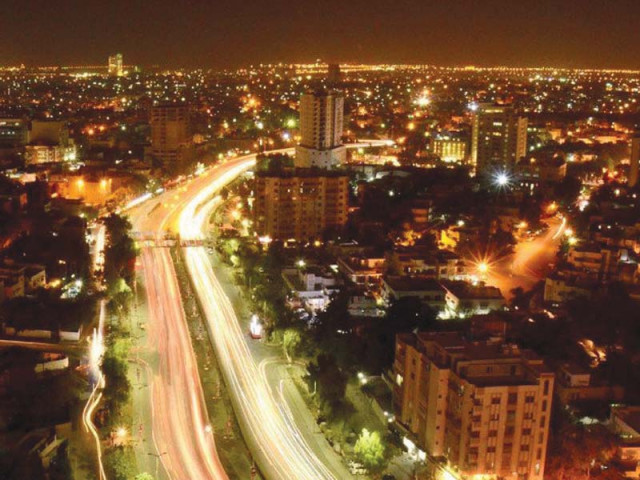Elite capture costs Pakistan's economy Rs860 billion per year
Asad Umar believes open, rule-based economy can break elite stranglehold

According to former finance minister Dr Hafiz Pasha, the FBR’s tax-to-GDP potential is not more than 14% and the government should resist pressure from the IMF to increase the ratio beyond that threshold. PHOTO: FILE
If the Pakistan Tehreek-e-Insaf (PTI) government manages to break the iron grip of the elite, the benefit in terms of additional revenues will end the need to levy more taxes under a possible International Monetary Fund (IMF) programme.
“Rule-based, open and transparency in economic decision-making is the solution to the elite capture,” remarked Umar while responding to a question on findings of a World Bank report.
The minister said strengthening parliament and ensuring institutional oversight would also help break the stranglehold of the elite.
According to the World Bank report, Pakistan’s economy right now is captured by four influential groups that have frustrated efforts to bring reforms. These are civil servants, landowners, industrialists and the military. The bank states that there is evidence that Pakistan’s elite has used this power in the past to undermine reforms that would have reduced their influence.
The report also stated that the military’s security-centric policies were a tool to extract state resources. But the finance minister disagreed. “If the military is using security-centric policies to extract resources it means the federal government is unable to play its role effectively,” he said.
“It is the government’s responsibility to own a policy or change it if it does not support it,” he added.
The finance minister said previous rulers of the country enjoyed their positions but blamed the military for their own faults.
A recent research suggested that the cost of elite capture was Rs860 billion or nearly 2.5% of gross domestic product (GDP), said former finance minister Dr Hafiz Pasha on Tuesday. He was speaking at the National Tax Conference, organised by the Institute of Chartered Accountants of Pakistan (ICAP).
He said the Rs860-billion cost had been worked out on the basis of tax expenditure that the elite influential groups had enjoyed. He pointed out that income tax exemption for trusts and agriculture was among few examples, adding who knew who owned these trusts.
“The imposition of 25% regulatory duty on the import of sugar is yet another example of elite capture,” said Pasha. “The state’s capture through the culture of Statutory Regulatory Orders has to end.”
The cost of elite capture is close to what Pasha has predicted, who believes that the IMF can ask Pakistan to levy additional taxes to increase the tax-to-GDP ratio to nearly 17%. “If we enter into an IMF programme having fiscal deficit heading towards 7% of GDP and tax-to-GDP ratio falling this year to 12.5%, the IMF may ask Pakistan to impose new taxes equal to 3-4% of GDP in the next two years,” said Pasha.
He feared that it would put an additional burden on the poor and the IMF would not care from where these taxes were generated. Pasha pointed out that recent work suggested that Pakistan’s tax potential was not more than 17% of GDP. “Our tax-to-GDP ratio was 13% at the end of last year and this means at best the government can enhance this ratio to 17%.”
However, he was of the view that the FBR’s tax-to-GDP potential was not more than 14% and the government should resist pressure from the IMF to increase the ratio beyond that threshold.
Participants of the National Tax Conference also discussed pitfalls of the FBR’s regressive tax regime. Most of the problems that Pakistani businessmen faced today or even a bad ranking in the World Bank’s Ease of Doing Business index were because of the tax policies, commented Ashfaq Tola, a member of the government’s Tax Reforms Implementation Committee (TRIC).
He said 60% of the money laundering was taking place in the real estate sector and the FBR and other government departments were doing nothing.
Poor tax collection was because of an inefficient and corrupt FBR and also the poor culture of tax compliance, said Abid Shaban, another member of TRIC. He said there were 30 million current accounts in Pakistan, but only 600,000 business people filed returns in tax year 2017. There were 3.5 million traders but registered trading units were only 135,000, said Shaban.
Chartered accountants and economists suggested forming an integrated National Tax Agency aimed at improving tax compliance and lowering the cost of being a return filer. Shabbar Zaidi, senior partner of AF Ferguson chartered accountancy firm, said abolition of the FBR was not the solution, adding before undertaking FBR’s reforms, the banking and foreign currency regime reforms had to be brought.
Published in The Express Tribune, March 20th, 2019.
Like Business on Facebook, follow @TribuneBiz on Twitter to stay informed and join in the conversation.



















COMMENTS
Comments are moderated and generally will be posted if they are on-topic and not abusive.
For more information, please see our Comments FAQ